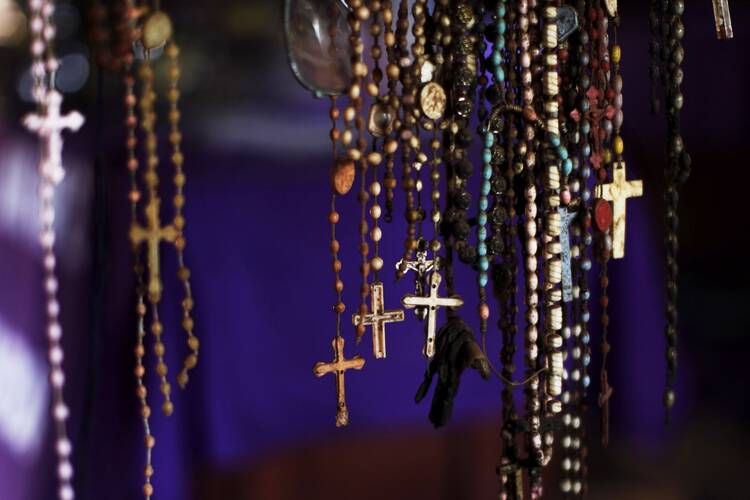Just days before Rwanda was to begin a weeklong period of official mourning to mark the 20th anniversary of its genocide, Pope Francis urged the country's bishops to be resolute in continuing the work of healing and reconciliation.
"Twenty years after those tragic events," when as many as 1 million people were murdered in savage acts of ethnic violence, Pope Francis said, "reconciliation and the healing of wounds must remain the priority of the church in Rwanda."
Meeting the country's bishops April 3 during their "ad limina" visits to the Vatican, the pope offered his prayers for all Rwandans "without distinction of religion, ethnicity or politics."
Forgiveness for what happened and "authentic reconciliation can seem impossible from a human point of view," the pope said, but they are gifts people can "receive from Christ through a life of faith and prayer."
"The path is long and requires patience, mutual respect and dialogue," he said.
Rwandans will begin an official week of mourning April 7 to mark the anniversary of the genocide, in which mostly Tutsis and some moderate Hutus, ethnic groups with a history of rivalry, were killed. Some massacres took place in churches; in some cases, entire congregations were murdered. Leaders of various Christian churches, including the Catholic Church, were implicated in the violence because of ties to one or the other ethnic group.
Pope Francis said the schools and hospitals the Catholic Church operates in Rwanda have an essential role to play in ensuring a future of peace in the country, but nothing they do can be as effective as Catholics being united in love and allowing "the Gospel to touch and convert their hearts."
"It is important that, overcoming prejudice and ethnic divisions, the church speaks with one voice, demonstrating its unity," Pope Francis told the bishops.
Pope Francis also encouraged the bishops to do everything possible to strengthen "relationships of trust between the church and state," saying that, too, would contribute to reconciliation in the country. "A constructive and authentic dialogue with the authorities can favor common works of reconciliation and the reconstruction of society based on the values of human dignity, justice and peace."
The pope also encouraged Rwanda's Catholics to entrust themselves to the maternal care of Mary, who appeared to three young Rwandan girls in the 1980s at Kibeho.
"The mother of Jesus wanted to show herself to your country's children, reminding them of the effectiveness of fasting and prayer, especially the rosary," Pope Francis said. "It is my ardent hope that you can make the shrine of Kibeho once again radiate the love of Mary for her children, especially the poorest and those who are wounded."








